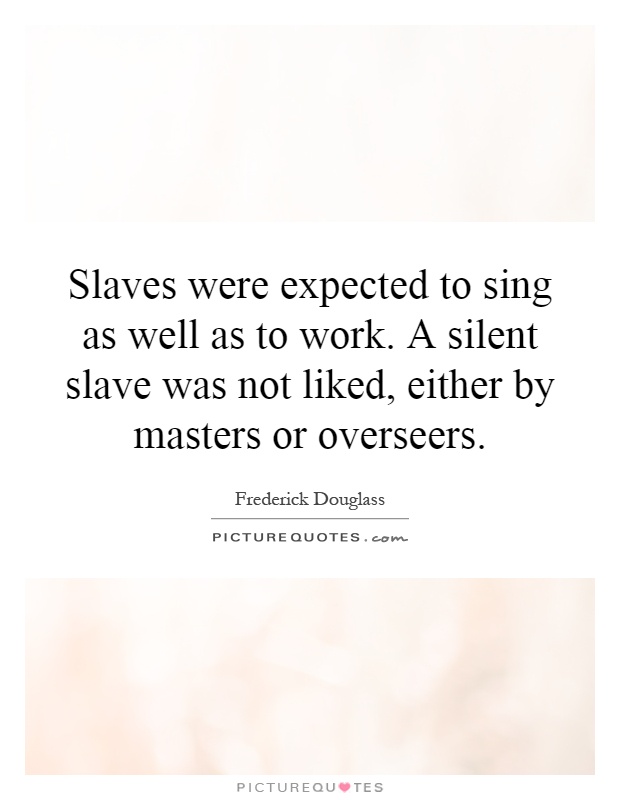Slaves were expected to sing as well as to work. A silent slave was not liked, either by masters or overseers

Slaves were expected to sing as well as to work. A silent slave was not liked, either by masters or overseers
In the context of Frederick Douglass, the idea that slaves were expected to sing as well as work holds significant weight. Douglass himself was a former slave who became a prominent abolitionist and advocate for the rights of African Americans. His own experiences as a slave shaped his understanding of the importance of resistance and defiance in the face of oppression.During his time as a slave, Douglass witnessed firsthand the expectation for slaves to sing while they worked. This expectation was not simply a matter of entertainment or distraction for the slave owners; it was a means of control and surveillance. Slaves who sang while they worked were seen as content and obedient, reinforcing the narrative of happy and compliant slaves that slave owners wanted to perpetuate. On the other hand, slaves who remained silent were viewed with suspicion and mistrust, as their silence was seen as a sign of defiance or discontent.
For Douglass, the expectation for slaves to sing while they worked was a form of psychological warfare, designed to strip them of their humanity and autonomy. By forcing slaves to sing, slave owners sought to erase their individuality and reduce them to mere cogs in the machinery of the plantation system. In his autobiography, Douglass describes how he and his fellow slaves would sing spirituals and work songs as a form of resistance, using music as a means of expressing their pain, anger, and longing for freedom.
Douglass understood the power of music as a tool of resistance and solidarity. He recognized that the act of singing while working was not simply a means of appeasing the masters, but a way for slaves to assert their humanity and dignity in the face of dehumanizing conditions. In this way, the expectation for slaves to sing while they worked was not simply a superficial requirement, but a deeply ingrained aspect of the system of slavery that sought to control and oppress them.












 Friendship Quotes
Friendship Quotes Love Quotes
Love Quotes Life Quotes
Life Quotes Funny Quotes
Funny Quotes Motivational Quotes
Motivational Quotes Inspirational Quotes
Inspirational Quotes